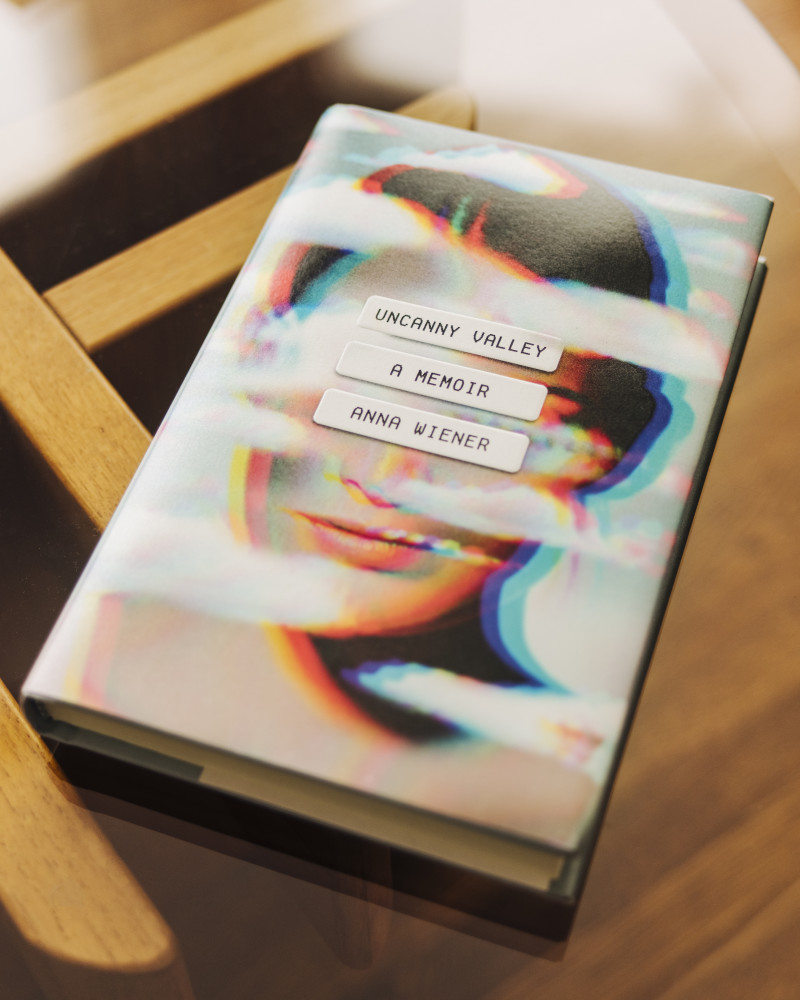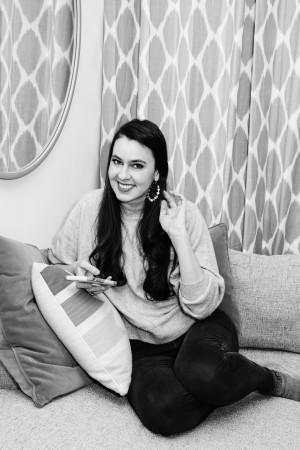The first great book of the new decade has arrived and it is, presciently, about the perils of the tech industry. At 25, Anna Wiener traded her entry-level job at a New York literary agency for the hubristic utopianism (and free snacks) of Silicon Valley. Seven years later, she's written a withering and insightful memoir about her time there, "Uncanny Valley," which comes out today. We caught up with Anna, who lives in San Francisco and now writes for The New Yorker, to talk about the book, the industry that inspired it, and Mark Zuckerberg's smug fashion sense.
Anna, congratulations on the book! How are you feeling?
Thank you! I’m curious who its readers will be, and what they’ll make of it. I’m hopeful that people in tech will want to read it. It’s weird, I have a finished copy on my desk, but it doesn’t feel real that it’s done. The material is still alive for me. There’s still so much I want to talk about and write about, with respect to this world.
Do you have any plans to celebrate today?
I’m doing a reading at the McNally Jackson in Williamsburg, and a Q&A with my friend Molly Fischer. After that, I’m hoping to meet up with friends—I don’t have a big plan.
The reviews are pretty much uniformly stellar. Are you surprised by anything that’s been written so far?
It’s just astonishing to me that people are giving so much time to a book that I wrote. I can’t get over it. It’s such a privilege.
Why did you choose to write a memoir as opposed to say, a collection of essays or even a novel?
I really wanted to write something that felt true to my experience. I don’t know that the material lends itself to an essay collection, where each essay would put forth a question, thesis, theme, or idea. I didn’t want to write fiction because I felt like no one would take it seriously or believe me, especially as a woman and non-engineer. I was worried it would be misunderstood, and dismissed, as satire.
In the book, you note that the Internet has led to a lot of “bloated,” over-researched writing. How did you avoid this pitfall yourself?
I tried to focus on material from my own life—emails to friends, text messages, photographs—rather than Google broadly or read a lot of commentary and news stories. I wanted to be protective of the material, and not let too many other voices or ideas flood in. I do wonder if my obsessive cataloging and list-making is its own form of bloat, though. I don’t think I’m immune to the internet’s influence.
You also observe how Silicon Valley tends to play fast and loose with the English language, from sloppy grammar to empty business-speak to just really dumb portmanteaus. Why is that? Do you think it stems from a general disregard for any language that isn’t code?
That’s a really interesting question. I don’t think there’s a disregard for languages that aren’t coding languages, though some people might exhibit a certain indifference. I think what spoken, or written language has in common with code is that each has its own logic, right? Each has its own rules and structure and restraints. Code has a computational logic, and provides a really clear sense of right or wrong, working or not working. When something is broken, you know it immediately. Natural languages can obfuscate and circumvent and be ambiguous and vague, and I can see that being really infuriating to a certain type of person. That said, I do think that jargon and euphemism can serve as a cover for thoughtfulness and intent, and can put a gloss on systems or behaviors deserving of great scrutiny.
Even for readers who’ve never stepped foot in Silicon Valley, your book is relatable, especially from a consumption standpoint. At one point, you compare your online browsing habits to “careening across the Internet like a drunk.” What is your relationship with the web today?
I’m definitely still reckless in my Internet behavior. I wish I had the self-discipline of someone like Jenny Odell, whose book, "How to Do Nothing," I loved. But I will say that between the death of Google Reader, the consolidation of media, and the rise of ad-driven platforms, my internet feels much smaller these days. I’m also very lucky to be doing work now that I really enjoy, so my time does feel more focused. I feel less that I am sleepwalking through my life.





